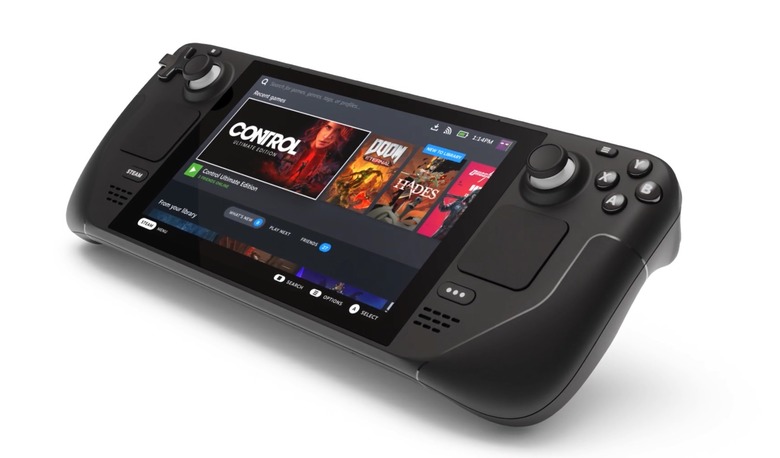Steam Deck's First Big Problem: Playing Popular Games
Rumors in late May said that Valve was on the verge of unveiling a portable gaming console similar to the Nintendo Switch. Nearly two months later, Valve delivered the Steam Deck. It's larger and beefier than the Nintendo Switch, but the new gaming rig appears to be intriguing to fans. The strange reservation process began on Friday in various markets. Many gamers complained online that they could not put their money where their interest was. You don't get to buy the console, only reserve one with a small deposit. You can change your mind at any point after paying that initial $5.
Despite the early excitement, Steam Deck might already have a huge software problem that Valve needs to fix: Running the popular games customers want.
The reason why Nintendo gets away with releasing a new Switch version that has no meaningful hardware upgrade is the games. Nintendo sits on a massive collection of original titles that gamers want. These games aren't available anywhere else. Customers might not like the lack of hardware upgrades on the Switch OLED. But they'll tolerate it as long as they can get Mario and Link.
Valve's new console appears to be a more formidable machine than the Switch. It's basically a portable PC that should run all of the best games in the Steam store. But that's just one small piece of the puzzle.
The early Steam Deck software issues
Valve's Steam has millions of customers already. That explains the huge interest in the Steam Deck. Unlike Nintendo, you can play all those Steam games on a PC. As long as the hardware supports it, the games will work.
The Steam Deck isn't even out, and it already has a huge software problem that Valve needs to fix. Per Kotaku, Steam Deck might not run some of Steam's most popular games. The list includes Destiny 2, Apex Legends, Rainbow Six Siege, and PUBG. That's a huge problem for a gaming console that starts at $399 and goes up to $649, depending on storage options.
Valve's new Steam Deck has better hardware than the Switch OLED. As a result, the more expensive price tag makes sense. But the software might be an issue.
The Steam Deck runs a custom Valve operating system (SteamOS) based on Linux. On top of it, Valve is running a feature called Proton that ensures games can run on Linux.
However, running the games mentioned above is a problem on the current Steam Deck prototype. Apparently, the games crash or fail not long after starting up. Kotaku says the Steam Deck software problem might already have an explanation. It's the anti-cheat systems that come with the games which don't play nice on the prototypes. This leads to players being "insta-booted" from multiplayer servers. That's the kind of issue that Valve will have to address before the Steam Deck hits stores.
The Windows solution
An unofficial fix already exists. You can run the full version of Windows 10 on the Steam Deck. Valve won't force SteamOS on anyone, and that's a great feature to have. But you'll need to fork over extra cash for Windows if SteamOS won't let you run your favorite games.
